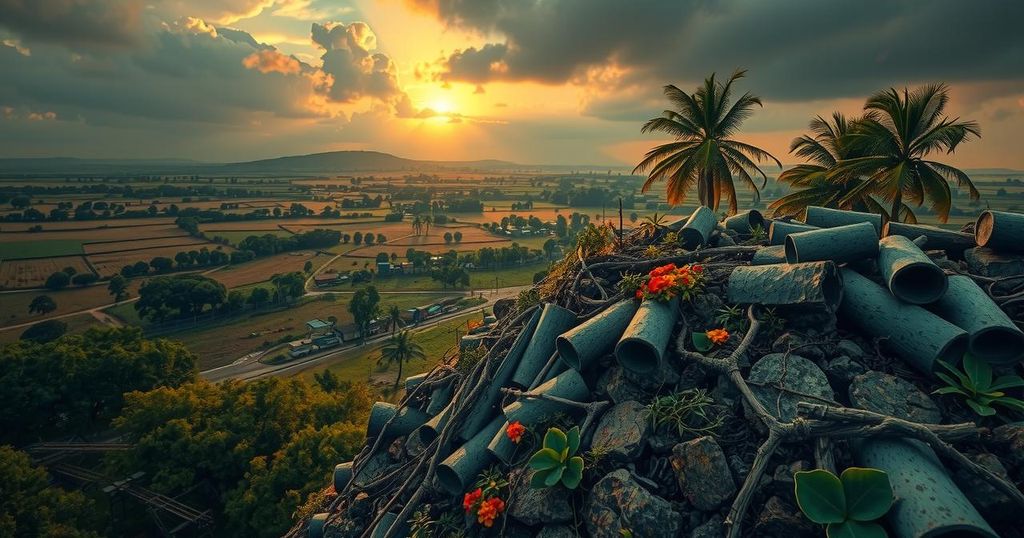Mozambique: Evolution from Civil War to Contemporary Challenges

Mozambique has transitioned from civil conflict to a multiparty political system since the 1992 peace agreements. Although the country has experienced growth and reforms, challenges persist, including political tensions, poverty, and insurgencies. Recent elections raised questions about legitimacy and fairness, highlighting ongoing struggles for political representation. As Mozambique approaches future elections, the resolution of these issues will be crucial for its stability and development.
The trajectory of Mozambique’s political and social landscape has been shaped significantly by its civil war and subsequent peace processes, culminating in multi-party elections. The post-war era saw the transformation of Renamo from a pariah group into a legitimate political entity, while Frelimo adjusted its governance, endorsing privatization and democratic reforms. Despite economic growth driven by natural resources and foreign investment, the nation faced challenges such as poverty and sporadic violence between political factions. The ongoing dialogue between Frelimo and Renamo, marked by both conflict and attempts at reconciliation, illustrates the complexities of Mozambique’s journey toward stability and democracy.
Foreign intervention in the form of military support has also been a significant aspect of Mozambique’s contemporary challenges, particularly against insurgents in the northern Cabo Delgado province. The socio-political climate has been further exacerbated by electoral controversies and allegations of malfeasance during elections, raising questions about the legitimacy of governing procedures and the role of opposition parties. As Mozambique approaches further elections, the interplay between economic aspirations and political stability remains critical to its future.
Mozambique’s history of civil conflict, stemming from a protracted war between the ruling Frelimo party and the opposition Renamo party, has significantly influenced its political development. Following the civil war, the country adopted reforms seen as necessary for peace and progress, including multiparty elections in 1994. The transition from a Marxist-Leninist framework to a more liberal economy marked a substantial shift in governance. Despite these advancements, challenges persisted, including economic disparities and continued tensions between Frelimo and Renamo. The recent elections have been marred by allegations of electoral fraud and violence, significantly affecting Mozambique’s democratic process and social cohesion.
In conclusion, Mozambique’s path from civil war to a fragile peace has been a complex and evolving situation marked by significant political and economic changes. The transition to a multiparty democracy has been accompanied by ongoing tensions between major political parties, particularly Frelimo and Renamo. Furthermore, issues such as electoral integrity and external insurgent threats contribute to the country’s multifaceted challenges. As Mozambique navigates its future, addressing these concerns will be paramount for achieving lasting peace and stability.
Original Source: www.britannica.com







